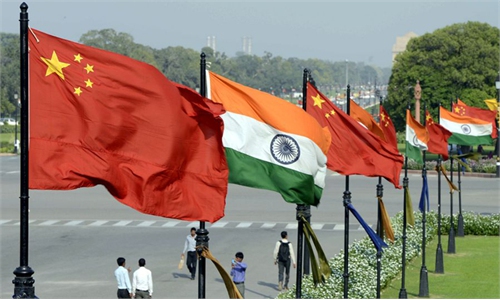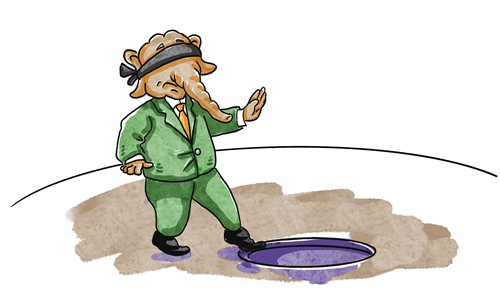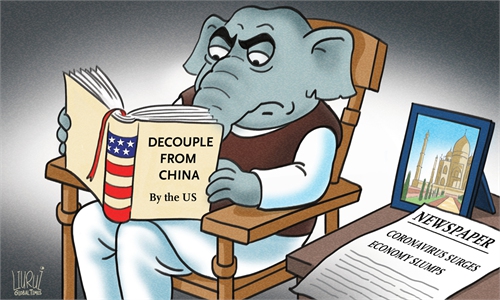Record GDP slump 'ominous' sign for India, worst may lie ahead: experts
Worst may lie ahead for New Delhi: experts
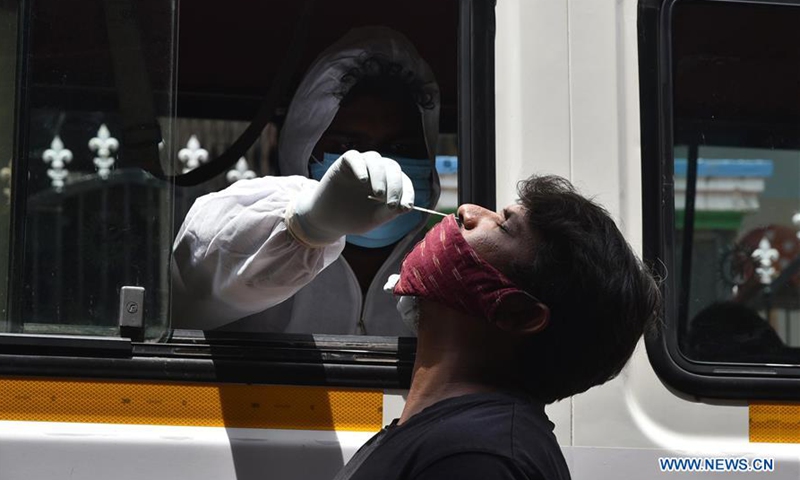
A health worker collects swab samples for COVID-19 test in Hyderabad, India on Aug. 28, 2020. (Str/Xinhua)
Indian officials and media outlets have been hyping up tensions with China both on the border and in trade and investment, but the latest official data might have revealed a deeper problem for the populous country and its Prime Minister Narendra Modi: its virus-stricken economy.
Data from the Indian government on Monday showed that the economy, which was among the fastest-growing just a couple of years ago, contracted by 23.9 percent in the April-June quarter, the steepest fall on record and the worst performance among major economies.
Like many countries, India's record fall in GDP was precipitated by the COVID-19 pandemic. India has one of the world's worst outbreaks of the deadly virus, leading to widespread shutdowns of businesses to contain the pandemic. As a result, the main growth drivers in India, including construction, manufacturing and transport, took a hit.
"Undoubtedly, the epidemic had a huge impact on the Indian economy… but what makes things even worse is India's mono growth model," Liu Xiaoxue, an associate research fellow at the National Institute of International Strategy under the Chinese Academy of Social Sciences, told the Global Times on Tuesday.
Liu noted that Indian GDP growth relies largely on services and consumption, while its manufacturing sector remains relatively small and less developed.
Highlighting that weakness was a relatively stronger recovery in many major economies across the world. China's GDP saw a solid comeback in the second quarter with a 3.2 percent gain, compared with a 6.8 percent fall in the first quarter.
Even the US, which has the most COVID-19 cases and deaths, saw a much slower GDP decline than India, with a 9.5 percent contraction in the second quarter of the year.
What's more worrisome is that while many major economies are on the path of recovery, the Indian economy could face even worse times ahead, as the virus continues to ravage the country and decision-makers in New Delhi are preoccupied with stirring up military and economic tensions with neighbors, most notably China.
On Monday, India reported over 78,500 cases of COVID-19, with experts warning that the country could surpass the US to have the worst outbreak in the world - complicating the Indian government's plan to reopen its economy.
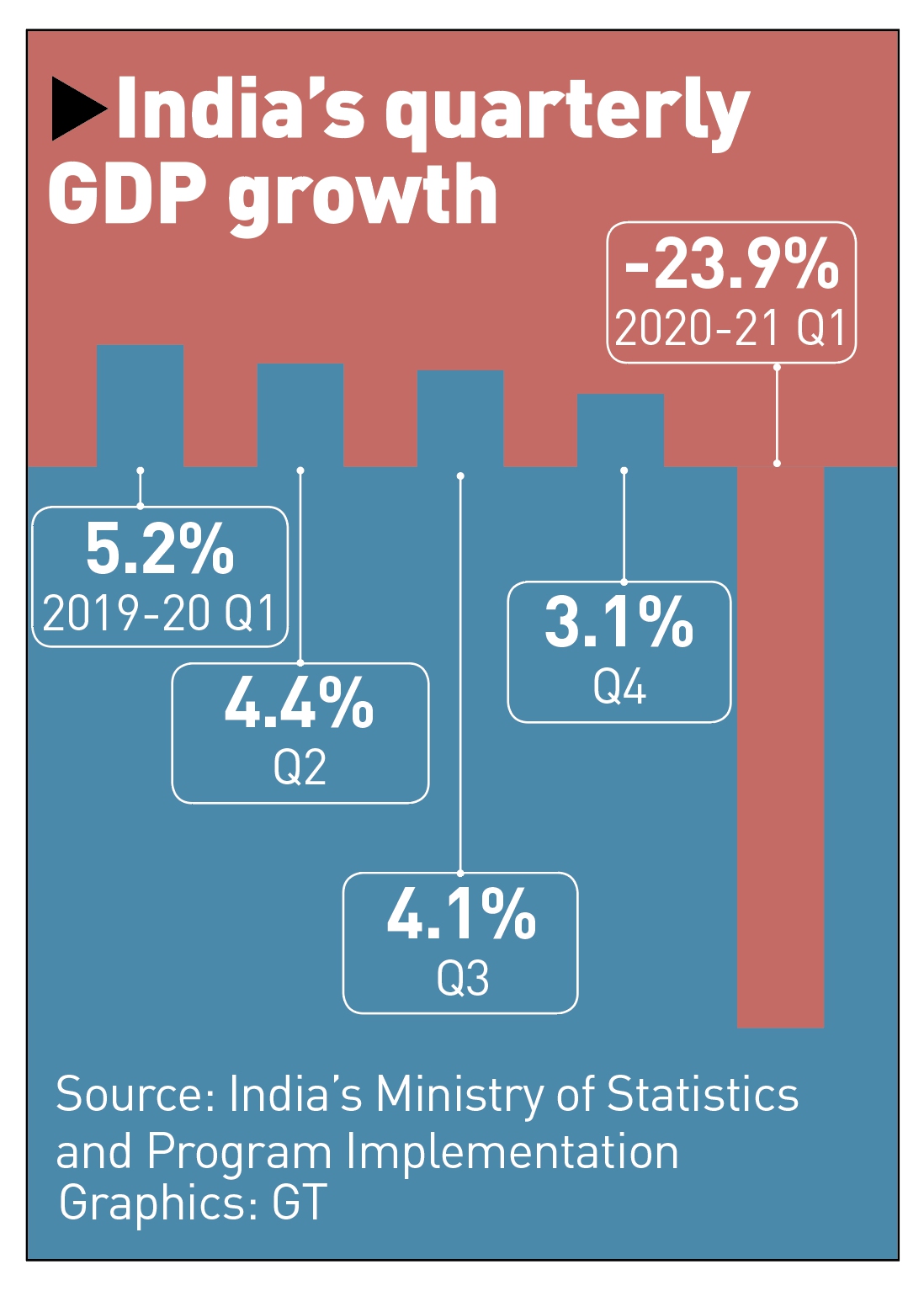
Graphics: GT
Almost simultaneously with the release of the record GDP contraction, Indian troops once again illegally crossed the Line of Actual Control on Monday, in a move of blatant provocation, China's Western Theater Command said Monday night. The latest tension came after a deadly clash between frontline troops in the Galwan Valley in June. Amid rising economic nationalism in the country, the Indian government has sought to impose restrictions on Chinese companies and investments.
"The reasons behind this action include the [Prime Minister Narendra Modi] administration's intention to deflect domestic attention away from its failure to contain the virus and promote economic recovery," Qian Feng, director of the research department of the National Strategy Institute at Tsinghua University, told the Global Times on Tuesday.
The record fall in GDP puts the spotlight back on Modi, who has boasted of a series of bold visions and policies for the Indian economy but who is increasingly proven to be failing in lifting up the country's economy, Chinese experts noted.
While Modi's government is seeking to deflect attention from its domestic woes by stirring up tension with China, a falling economy could make that hard to do, the experts noted.
Qian noted that against the backdrop of dim global economic growth, India's pursuit of conflicts with China could deal setbacks to foreign investment in India, and further slow down its recovery in terms of employment and growth.
India's moves to stir up tension with China have seriously damaged its standing among the Chinese public, many of whom are supporting the Chinese government to retaliate against India, according to the latest survey by the Global Times and the China Institute of Contemporary International Relations.
Among nearly 2,000 Chinese surveyed, more than 70 percent said that India was being too hostile toward China and nearly 90 percent supported the government in strongly retaliating against Indian aggression, the survey showed.
While China has not announced countermeasures against India in the economic and trade area, some Chinese companies have already moved to cut investments in the country, including e-commerce giant Alibaba, which was halting investments in Indian start-ups for months.

